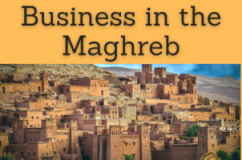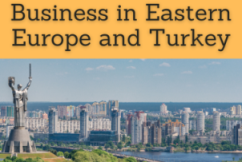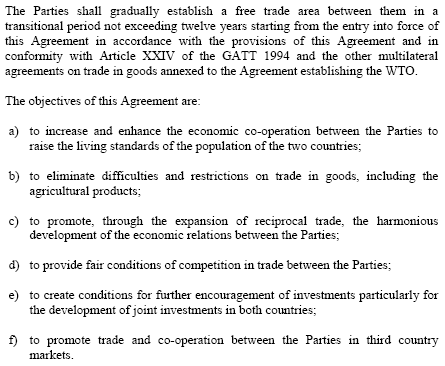Turkey-Morocco Agreement

Turkey-Morocco Free Trade Agreement
- Introduction to the Turkey-Morocco Agreement
- Advantages of the Agreement
- International Trade between Turkey and Morocco


The Subject “Turkey-Morocco Free Trade Agreement (FTA)” belongs to the following Online Programs taught by EENI Global Business School:
Masters: International Business, Foreign Trade.
Doctorate: Islamic Business, African Business, World Trade.
Course: Maghreb.

Languages: 
 Turquía Marruecos
Turquía Marruecos  Maroc Turquie
Maroc Turquie  Morrocos.
Morrocos.

 Uluslararası İşletme Yüksek Lisans.
Uluslararası İşletme Yüksek Lisans.
Turkey-Morocco Free Trade Agreement.
The Free Trade Agreement between Turkey and Morocco entered into force in 2006.
Sample - Turkey-Morocco Free Trade Agreement (FTA)

- Morocco has a transitional period of ten years
- For the Kingdom of Morocco and Turkey the industrial products liberalization it is important for while a large part of the agricultural products remain partially protected
- The Republic of Turkey has liberalized 82% of the tariff lines (97% of its imports from Morocco), and 2,160 lines remain taxed (agricultural products exports)
- Foreign trade between Turkey and the Kingdom of Morocco represents 0.4% of the total imports (500 million dollars)
- Trade balance between Morocco and Turkey is heavily skewed in favor to Morocco (which imports 400 million dollars and exports 100 million dollars)
- The main export products between Morocco and Turkey are metals, textiles, and chemicals exports
- Morocco has an MFN clause (most-favoured-nation) with an average tariff of 23% (43% for the agricultural products exports)
- The Turkey-Morocco Free Trade Agreement does not include any provision for the ban removal on customs duties or quantitative restrictions on the exports of agricultural commodities
The Turkey-Morocco Free Trade Agreement belongs to the Islamic Civilization:
More information about Morocco (EENI African Business Portal).
Moroccan Trade Agreements: Arab Maghreb Union, CEN-SAD, the U.S., EFTA, the EU, Arab Mediterranean Trade Agreement, TPS-OIC...
Turkish Trade Agreements: EFTA, Tunisia, Egypt, EU (Customs Union), Chile, Africa-Turkey, Turkic Council...

(c) EENI Global Business School (1995-2024)
We do not use cookies
Top of this page



